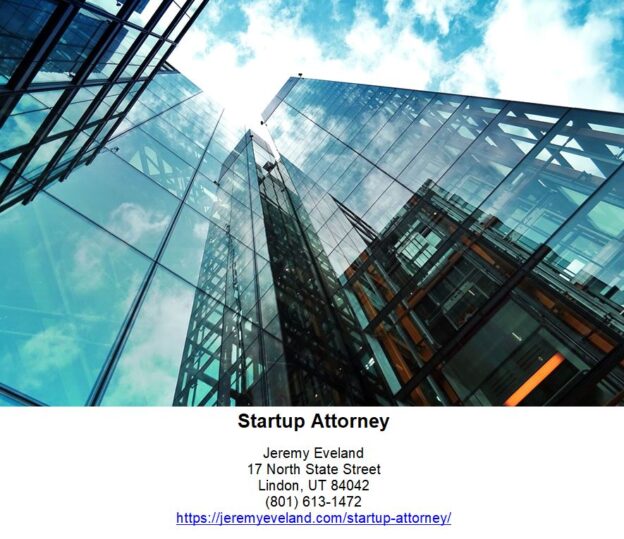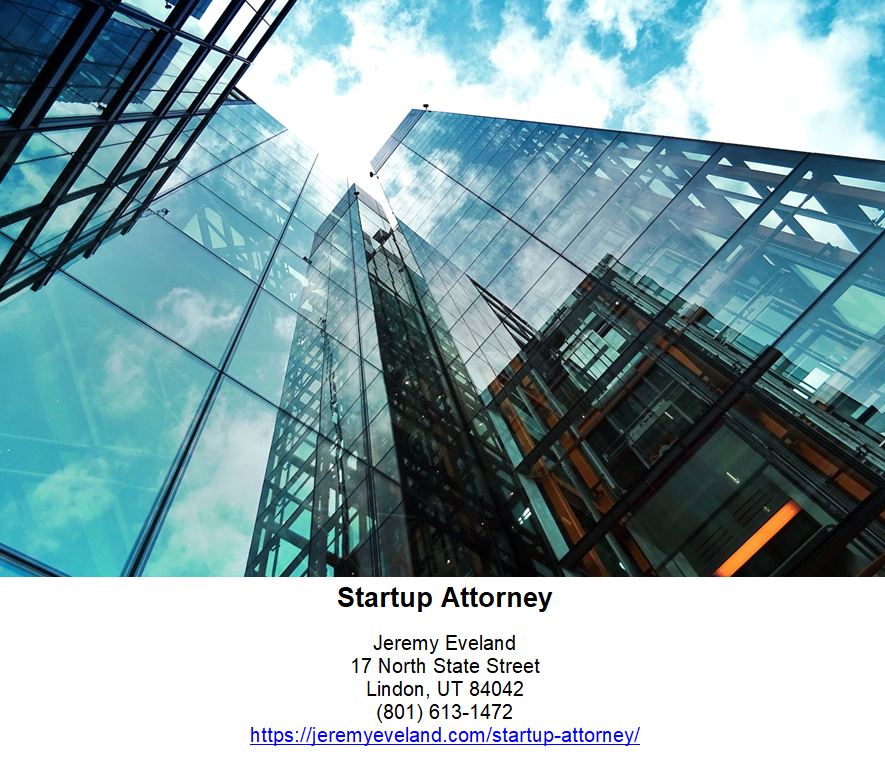Business Contract Lawyer Salt Lake City
-
Legal Topics
- Introduction
- The Benefits of Hiring a Business Contract Lawyer in Salt Lake City
- Understanding the Different Types of Business Contracts in Salt Lake City
- How to Choose the Right Business Contract Lawyer for Your Needs
- Common Mistakes to Avoid When Drafting Business Contracts in Salt Lake City
- The Advantages of Working with an Experienced Business Contract Lawyer in Salt Lake City
- Q&A
“Secure Your Business with a Professional Business Contract Lawyer in Salt Lake City!”
Introduction
Welcome to Business Contract Lawyer Salt Lake City! We are a team of experienced attorneys dedicated to providing the highest quality legal services to businesses in the Salt Lake City area. Our attorneys have extensive experience in all aspects of business contract law, including drafting, negotiating, and litigating contracts. We understand the importance of protecting your business interests and will work diligently to ensure that your contracts are legally sound and enforceable. We are committed to providing our clients with the best legal advice and representation possible. Whether you are a small business or a large corporation, we are here to help you navigate the complexities of business contract law.
The Benefits of Hiring a Business Contract Lawyer in Salt Lake City
Hiring a business contract lawyer in Salt Lake City can be a great asset to any business. A business contract lawyer can provide invaluable advice and guidance on a variety of legal matters, from drafting and negotiating contracts to resolving disputes. Here are some of the benefits of hiring a business contract lawyer in Salt Lake City:
1. Expertise: A business contract lawyer in Salt Lake City has the expertise and experience to help you navigate the complexities of business law. They can provide advice on the best way to structure contracts, draft documents, and negotiate terms. They can also help you understand the legal implications of any decisions you make.
2. Cost Savings: Hiring a business contract lawyer in Salt Lake City can save you money in the long run. By having a lawyer review and negotiate contracts, you can avoid costly disputes and litigation. This can save you time and money in the long run.
3. Risk Management: A business contract lawyer in Salt Lake City can help you manage risk. They can help you identify potential risks and develop strategies to mitigate them. This can help you protect your business from potential legal issues.
4. Dispute Resolution: A business contract lawyer in Salt Lake City can help you resolve disputes quickly and efficiently. They can provide advice on the best way to approach a dispute and help you negotiate a resolution.
Hiring a business contract lawyer in Salt Lake City can be a great asset to any business. They can provide invaluable advice and guidance on a variety of legal matters, from drafting and negotiating contracts to resolving disputes. By having a lawyer review and negotiate contracts, you can avoid costly disputes and litigation. They can also help you identify potential risks and develop strategies to mitigate them. Finally, they can help you resolve disputes quickly and efficiently. All of these benefits make hiring a business contract lawyer in Salt Lake City a wise investment.
Understanding the Different Types of Business Contracts in Salt Lake City
Business contracts are essential for any business in Salt Lake City. They provide a legal framework for the relationship between two or more parties, and they help to ensure that all parties involved understand their rights and obligations. There are several different types of business contracts, each with its own purpose and set of rules. Understanding the different types of business contracts can help businesses in Salt Lake City protect their interests and ensure that their agreements are legally binding.
The most common type of business contract is a written agreement. Written agreements are legally binding documents that outline the terms and conditions of a business relationship. They typically include information such as the parties involved, the purpose of the agreement, the duration of the agreement, and any other relevant details. Written agreements are often used to establish long-term business relationships, such as partnerships or joint ventures.
Another type of business contract is an oral agreement. Oral agreements are verbal agreements between two or more parties. They are not legally binding, but they can still be enforced in court if one of the parties fails to fulfill their obligations. Oral agreements are often used for short-term business relationships, such as hiring a contractor for a specific project.
A third type of business contract is a unilateral contract. Unilateral contracts are agreements in which only one party is legally bound to fulfill their obligations. These contracts are often used when one party is providing a service or product to another party, and the other party is not obligated to provide anything in return.
Finally, there are implied contracts. Implied contracts are agreements that are not explicitly stated but are assumed to exist based on the actions of the parties involved. These contracts are often used in situations where one party has provided a service or product to another party, and the other party has accepted the service or product without explicitly agreeing to a contract.
Understanding the different types of business contracts in Salt Lake City can help businesses protect their interests and ensure that their agreements are legally binding. By familiarizing themselves with the different types of contracts, businesses can ensure that they are entering into agreements that are in their best interests.
How to Choose the Right Business Contract Lawyer for Your Needs
Choosing the right business contract lawyer for your needs is an important decision. A good lawyer can help you protect your interests and ensure that your contracts are legally binding. Here are some tips to help you find the right lawyer for your business:
1. Research: Before you hire a lawyer, do your research. Look for lawyers who specialize in business contract law and have experience in the area you need help with. Check their credentials and read reviews from past clients.
2. Ask Questions: Once you’ve narrowed down your list of potential lawyers, contact them and ask questions. Find out how long they’ve been practicing, what their experience is in the area you need help with, and what their fees are.
3. Meet in Person: Once you’ve found a few lawyers you’re interested in, meet with them in person. This will give you a chance to get to know them and ask more detailed questions.
4. Get References: Ask the lawyers for references from past clients. This will give you an idea of how they work and how satisfied their clients are.
5. Negotiate Fees: Once you’ve chosen a lawyer, negotiate their fees. Make sure you understand what services they’ll provide and how much they’ll charge.
By following these tips, you can find the right business contract lawyer for your needs. With the right lawyer, you can ensure that your contracts are legally binding and protect your interests.
Common Mistakes to Avoid When Drafting Business Contracts in Salt Lake City
When drafting business contracts in Salt Lake City, it is important to be aware of common mistakes that can lead to costly legal disputes. Here are some of the most common mistakes to avoid when drafting business contracts:
1. Not including all relevant parties: Make sure to include all relevant parties in the contract. This includes any third-party vendors, suppliers, or other entities that may be involved in the agreement.
2. Not including all relevant details: Make sure to include all relevant details in the contract. This includes the scope of the agreement, payment terms, deadlines, and any other important information.
3. Not using clear language: Make sure to use clear and concise language in the contract. Avoid using legal jargon or overly complex language that may be difficult to understand.
4. Not having the contract reviewed by a lawyer: Before signing a contract, it is important to have it reviewed by a lawyer. This will help ensure that the contract is legally binding and enforceable.
5. Not having the contract signed by all parties: Make sure to have the contract signed by all parties involved. This will help ensure that all parties are legally bound to the agreement.
By avoiding these common mistakes when drafting business contracts in Salt Lake City, you can help ensure that your agreement is legally binding and enforceable.
The Advantages of Working with an Experienced Business Contract Lawyer in Salt Lake City
Working with an experienced business contract lawyer in Salt Lake City can provide numerous advantages to businesses. A business contract lawyer can help to ensure that contracts are legally binding and enforceable, and can provide advice on how to best protect the interests of the business.
One of the primary advantages of working with an experienced business contract lawyer is that they can help to ensure that contracts are legally binding and enforceable. A business contract lawyer can review contracts to ensure that they are in compliance with applicable laws and regulations, and can provide advice on how to best protect the interests of the business. They can also help to identify potential issues that could arise in the future, and can provide advice on how to best address them.
Another advantage of working with an experienced business contract lawyer is that they can provide advice on how to best negotiate contracts. A business contract lawyer can provide advice on how to best structure a contract to ensure that the interests of the business are protected, and can provide advice on how to best negotiate terms and conditions. They can also provide advice on how to best handle disputes that may arise in the future.
Finally, an experienced business contract lawyer can provide advice on how to best protect the business from potential liabilities. A business contract lawyer can review contracts to ensure that they are in compliance with applicable laws and regulations, and can provide advice on how to best protect the business from potential liabilities. They can also provide advice on how to best handle disputes that may arise in the future.
Overall, working with an experienced business contract lawyer in Salt Lake City can provide numerous advantages to businesses. A business contract lawyer can help to ensure that contracts are legally binding and enforceable, and can provide advice on how to best protect the interests of the business. They can also provide advice on how to best negotiate contracts, and how to best protect the business from potential liabilities.
Q&A
1. What services does a business contract lawyer in Salt Lake City provide?
A business contract lawyer in Salt Lake City can provide a variety of services, including drafting, reviewing, and negotiating contracts, advising on legal issues related to business transactions, and representing clients in court.
2. How much does a business contract lawyer in Salt Lake City cost?
The cost of a business contract lawyer in Salt Lake City will depend on the complexity of the case and the lawyer’s experience. Generally, lawyers charge an hourly rate or a flat fee for their services.
3. What qualifications should I look for in a business contract lawyer in Salt Lake City?
When looking for a business contract lawyer in Salt Lake City, it is important to find someone who is experienced in the area of business law and has a good understanding of the local laws and regulations. Additionally, it is important to find a lawyer who is knowledgeable and has a good reputation.
4. What should I expect during my initial consultation with a business contract lawyer in Salt Lake City?
During your initial consultation with a business contract lawyer in Salt Lake City, you should expect to discuss the details of your case and the lawyer’s experience in the area of business law. The lawyer should also provide you with an estimate of the cost of their services.
5. What should I do if I am not satisfied with the services of my business contract lawyer in Salt Lake City?
If you are not satisfied with the services of your business contract lawyer in Salt Lake City, you should contact the lawyer and explain your concerns. If the lawyer is unable to resolve the issue, you may need to seek legal advice from another lawyer.
Business Contract Consultation
When you need legal help with a business contract, call Jeremy D. Eveland, MBA, JD (801) 613-1472 for a consultation.
Jeremy Eveland
17 North State Street
Lindon UT 84042
(801) 613-1472
Related Posts
Business Succession Lawyer Lehi Utah
Business Succession Lawyer Millcreek Utah
Business Succession Lawyer Murray Utah
Business Lawyer Salt Lake City Utah
Salt Lake City Business Transaction Attorney
Business Succession Lawyer Herriman Utah
What Are The Advantages Of Hiring A Business Lawyer?
Business Succession Lawyer Logan Utah
What Is The Relationship Between Business Law And Economies?
Business Transaction Lawyer West Valley City Utah
Do I Need A Permit To Start A Business In Utah?
Business Succession Lawyer Draper Utah
Business Contract Lawyer Salt Lake City
Salt Lake City
|
Salt Lake City, Utah
|
|
|---|---|
| City of Salt Lake City[1] | |

Clockwise from top: The skyline in July 2011, Utah State Capitol, TRAX, Union Pacific Depot, the Block U, the City-County Building, and the Salt Lake Temple
|
|
| Nickname:
“The Crossroads of the West”
|
|

Interactive map of Salt Lake City
|
|
| Coordinates: 40°45′39″N 111°53′28″WCoordinates: 40°45′39″N 111°53′28″W | |
| Country | |
| State | |
| County | Salt Lake |
| Platted | 1857[2] |
| Named for | Great Salt Lake |
| Government
|
|
| • Type | Strong Mayor–council |
| • Mayor | Erin Mendenhall (D) |
| Area | |
| • City | 110.81 sq mi (286.99 km2) |
| • Land | 110.34 sq mi (285.77 km2) |
| • Water | 0.47 sq mi (1.22 km2) |
| Elevation
|
4,327 ft (1,288 m) |
| Population | |
| • City | 200,133 |
| • Rank | 122nd in the United States 1st in Utah |
| • Density | 1,797.52/sq mi (701.84/km2) |
| • Urban
|
1,178,533 (US: 41st) |
| • Urban density | 3,923.0/sq mi (1,514.7/km2) |
| • Metro
|
1,257,936 (US: 47th) |
| • CSA
|
2,746,164 (US: 22nd) |
| Demonym | Salt Laker[5] |
| Time zone | UTC−7 (Mountain) |
| • Summer (DST) | UTC−6 |
| ZIP Codes | |
| Area codes | 801, 385 |
| FIPS code | 49-67000[7] |
| GNIS feature ID | 1454997[8] |
| Major airport | Salt Lake City International Airport |
| Website | Salt Lake City Government |
Salt Lake City (often shortened to Salt Lake and abbreviated as SLC) is the capital and most populous city of Utah, United States. It is the seat of Salt Lake County, the most populous county in Utah. With a population of 200,133 in 2020,[10] the city is the core of the Salt Lake City metropolitan area, which had a population of 1,257,936 at the 2020 census. Salt Lake City is further situated within a larger metropolis known as the Salt Lake City–Ogden–Provo Combined Statistical Area, a corridor of contiguous urban and suburban development stretched along a 120-mile (190 km) segment of the Wasatch Front, comprising a population of 2,746,164 (as of 2021 estimates),[11] making it the 22nd largest in the nation. It is also the central core of the larger of only two major urban areas located within the Great Basin (the other being Reno, Nevada).
Salt Lake City was founded July 24, 1847, by early pioneer settlers led by Brigham Young, who were seeking to escape persecution they had experienced while living farther east. The Mormon pioneers, as they would come to be known, entered a semi-arid valley and immediately began planning and building an extensive irrigation network which could feed the population and foster future growth. Salt Lake City’s street grid system is based on a standard compass grid plan, with the southeast corner of Temple Square (the area containing the Salt Lake Temple in downtown Salt Lake City) serving as the origin of the Salt Lake meridian. Owing to its proximity to the Great Salt Lake, the city was originally named Great Salt Lake City. In 1868, the word “Great” was dropped from the city’s name.[12]
Immigration of international members of the Church of Jesus Christ of Latter-day Saints (LDS Church), mining booms, and the construction of the first transcontinental railroad initially brought economic growth, and the city was nicknamed “The Crossroads of the West”. It was traversed by the Lincoln Highway, the first transcontinental highway, in 1913. Two major cross-country freeways, I-15 and I-80, now intersect in the city. The city also has a belt route, I-215.
Salt Lake City has developed a strong tourist industry based primarily on skiing, outdoor recreation, and religious tourism. It hosted the 2002 Winter Olympics and is a candidate city for the 2030 Winter Olympics. It is known for its politically liberal culture, which stands in contrast with the rest of the state’s highly conservative leanings.[13] It is home to a significant LGBT community and hosts the annual Utah Pride Festival.[14] It is the industrial banking center of the United States.[15] Salt Lake City and the surrounding area are also the location of several institutions of higher education including the state’s flagship research school, the University of Utah. Sustained drought in Utah has more recently strained Salt Lake City’s water security and caused the Great Salt Lake level drop to record low levels,[16][17] and has impacted the local and state economy.[18]
[geocentric_weather id=”79414f66-9f4c-4a1a-9eaa-8bbae65c0683″]
[geocentric_about id=”79414f66-9f4c-4a1a-9eaa-8bbae65c0683″]
[geocentric_neighborhoods id=”79414f66-9f4c-4a1a-9eaa-8bbae65c0683″]
[geocentric_thingstodo id=”79414f66-9f4c-4a1a-9eaa-8bbae65c0683″]
[geocentric_busstops id=”79414f66-9f4c-4a1a-9eaa-8bbae65c0683″]
[geocentric_mapembed id=”79414f66-9f4c-4a1a-9eaa-8bbae65c0683″]
[geocentric_drivingdirections id=”79414f66-9f4c-4a1a-9eaa-8bbae65c0683″]
[geocentric_reviews id=”79414f66-9f4c-4a1a-9eaa-8bbae65c0683″]









